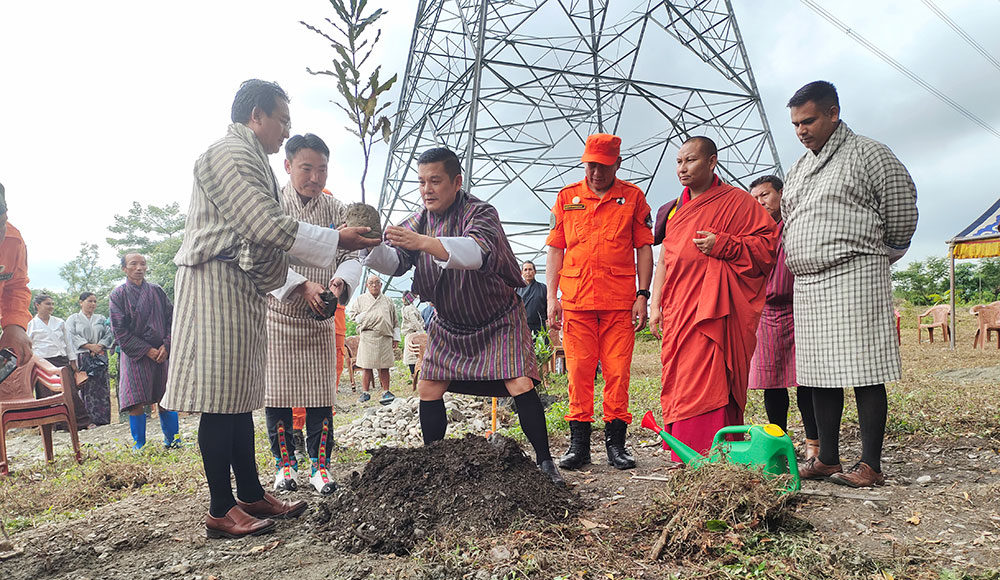Lhakpa Quendren
Sarpang — De-suups planted more than a million high-value fruit trees across the country in the second phase of the Million Fruit Trees Project which ended on August 19.
The second phase of the project by Ministry of Agriculture and Livestock in partnership with the De-Suung National Service, started on February 5 in Guma gewog, Punakha, and was completed on August 19 in Samtenling gewog, Sarpang.
The project planted 1,009,620 trees and benefited 41,315 farmers, 324 government agencies, 257 schools, and 137 dratshangs.
Principal Horticulture Officer of the Department of Agriculture (DoA), Sangay Dendup, said that the project’s achievement has exceeded the initial expectations with an additional plantation of 6,000 trees in both temperate and sub-tropical zones.
The agriculture ministry in collaboration with the Million Fruit Tree Project is developing an export strategy. “For instance, a mango tree yields fruit within five years. So even if a tree survives, it can generate income for decades.”
All planted fruit seedlings were geo-coded using the Kobo toolbox for ease of monitoring and follow-up interventions in the future.
In Sarpang, 88 de-suups planted 39,000 trees which exceeded the initial target of planting 36,000 trees in the dzongkhag.
Sarpang Dzongdag, Lobzang Dorji urged the beneficiaries present at the closing programme to ensure proper care for the trees. “Your care will yield both financial gains and nutritional benefits for yourself. It is important to care for roots, not just the fruits.”
A representative from the De-Suung Office, Sonam Wangchuk, said that the project has provided opportunities for de-suups, especially the youth, to contribute to the nation.
He added that about 1,300 de-suups were involved in the second phase plantation in 17 dzongkhags from May to August.
The second phase of the project prioritised planting of fruit varieties such as almond, pecan nut, kiwi, walnut, avocado, dragon fruit, macadamia nut, irwin mango, seedless lime, soursop, and mandarin. The project later included an agar-wood and coconut plantation upon the Royal Command of His Majesty The King.
The distribution was determined based on the location of the communities, availability of land, suitability for a particular geographic and climatic zone, and economic importance.
The second phase also replaced all 30 percent dead plants. This is to ensure the survival of at least a million fruit trees from the first phase.
To assess mortality using geo-coded records, the agriculture department, in partnership with the De-Suung National Service, will conduct field surveys from September to October for the temperate plants and from November to December for sub-tropical plants.
Meanwhile, the first phase of the project in three months in 2022 planted 1,014,785 fruit trees engaging 2,118 de-suups.


